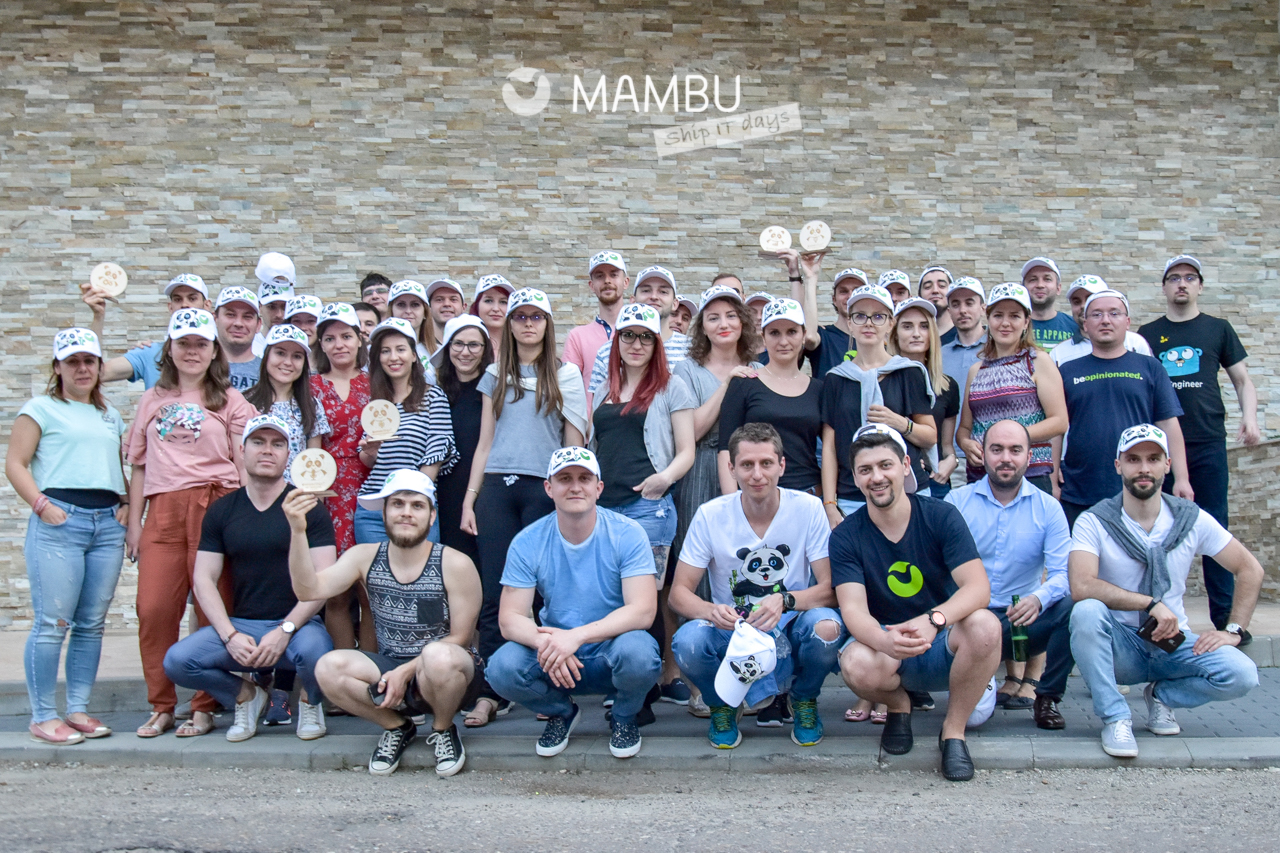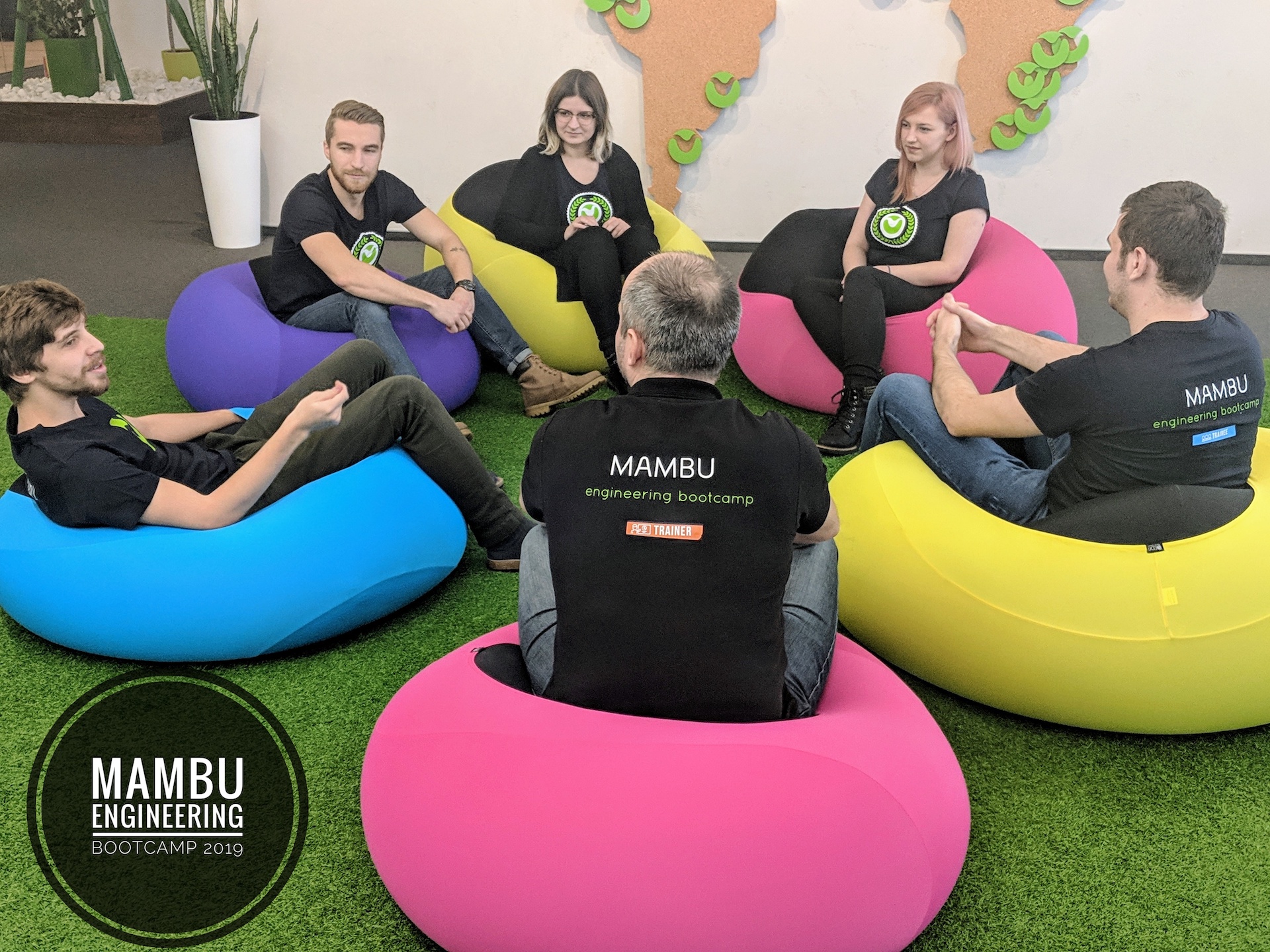
Pavel Chunyayev, Mambu: Everyone’s doing DevOps in 2019
It is time to meet the Diamond Sponsors and their opinions on the trends in the industry! Today we recommend you reading this interview with Pavel Chunyayev, Platform and Reliability Engineering Champion at Mambu, Diamond Sponsor at DevExperience for the fourth time in a row.
DevExperience: How do you see DevOps in 2019 and how do you see the future of the IT industry?
Pavel Chunyayev: DevOps is an established practice in 2019. It’s nothing new anymore. People don’t ask what it is, they are not worried if it’s going to work or not. DevOps is a standard approach now. There are still ways of interpreting what DevOps is. It all started of course with three ways into DevOps. There was also CALMS. The main focus of the change was about introducing the right culture and ensure cooperation for smooth delivery of features and running application in production. I see a lot of companies and engineers, however, that just re-labeled the work of operations engineers and that was the only change for them. This makes me sad. But this is a normal development for technological concepts.
Everyone’s doing DevOps in 2019. There are well established communities, conferences and certifications. The big change has happened with the growing popularity of public cloud and architecture of microservices. Suddenly you needed to automate everything, otherwise the situation quickly became unmanageable. This is also what caused interest in DevOps by software developers.
The future of DevOps is hard to predict. But there are general ways in which such concepts develop. Right now only laggards are trying to jump on DevOps train. New concepts start emerging. There is a discussion, as always, if new concepts are the same or different than the established practice. In some years people would refer to DevOps as legacy and focus on a new shiny idea. Others would argue that this is the only way to go and there’s no need to come up with new ideas.
DevExperience: How do you find Iași and Romania and what are the main differences between the Romanian IT industry and the IT industry in The Netherlands?
Pavel Chunyayev: There are a lot of young people in Iasi who are interested in IT and in pursuing a career in engineering. In the Netherlands there is a huge shortage of engineering talent. Engineering is not considered an interesting career-choice.
IT in Romania is a lot younger. Might be a bit less experienced from the perspective of pure number of years. But this also comes with new ideas and technologies. Some already outdated practices got never established in Romania. This gives a huge boost of new ideas and new way of thinking.
At the same time, industry in the Netherlands is a lot more diverse. You can see people of different genders, backgrounds, countries of origin in the offices of Dutch tech companies. This provides a great opportunity for creative problem solving.
DevExperience: What would you say to someone who wants to become an engineer? What it is that you need to do to be one of the best engineers in the field?
Pavel Chunyayev: My main advice is to find your passion. Find something that keeps you awake at night. Something that will become a big part of your life. Something that you will be comfortable to spend enormous amount of time learning, practicing and improving. This is hard to do without passion. And without continuous learning you won’t be successful in an engineering career.
It’s a long game, not a sprint. Learn how to learn. This is the best skill in engineering. There will always be new tools, new approaches, ways of working, programming languages, concepts. You won’t be able to learn all of them. But you will be able to learn anything when needed.
Find something that drives you and become the best in the world in doing that. And you will have a successful career and a happy life.

Mambu Engineering team @ Ship IT days 2018
DevExperience: How would you present Mambu to a junior who would like to work there?
Pavel Chunyayev: It is a fact that during our technical interviews we have identified plenty of junior people with potential who we would like to work with, from a culture match, we actually acknowledged that we can see them in one of the teams as soon as they leverage their technical knowledge. Hard thing to do on your own to get in Mambu, also a fact.
Hereby, we organised the Bootcamp Engineering Program, the idea of contributing to the technical knowledge leverage ourselves. As a big piece, the program had a couple of goals out of which assuring team longevity, assuring grade balance, forming people on our values and way of working, and enabling new opportunities for the exiting Mambuvians are the main ones. The program took 3 months and after intensive trainings all Bootcampers have been successfully on-boarded and assigned to the Mambu teams.
In short, we advise not only juniors but everyone who would like to join Mambu to be passionate, onboard and challenge new findings constructively, whether technical or business related, look at a problem from all angles.

DevExperience: FinTech is very competitive. How does the operational part keep up with the product?
Pavel Chunyayev: Operational aspect is very important of any financial organization. And specifically for FinTechs. The main advantage of these companies is that they are capable of rapidly and safely deliver new features, and run them in production. This requires robust operations capabilities.
There is even a view that architecture is dead. The way modern applications are developed, released and operated is driven by operations. It’s not only about development. It’s about scalability, cost-efficiency, high availability and data protection.
Only the best companies can survive this competition. And only by putting shared effort towards the common goal. Segregation of duties and no access to production are old ideas and they slowly die out.
DevExperience: What obstacles have you met while trying to offer financial services in cloud, regarding the strict regulations?
Pavel Chunyayev: The main obstacle is that financial companies are lagging 5-10 years behind modern industry practices. As the issue at hand is complex and very delicate - personal data and money, existing companies created frameworks of controls, and are generally reluctant to try something new, unless it has a proven track record of many years without major incidents.
Furthermore, public cloud services can be a scary concept when you’ve got used to own your hardware and depreciate investments over years in service. Companies have spent considerable amounts to create private cloud, just because the word “public” seemed so scary. In 2019 it looks to have been a wrong move. But the jury is still out.
As Mambu we have a very tight SLA of 99,99% availability. And we had to build trust in our services by hard work. We also spent numerous hours at meetings with clients, prospects and regulators to convince them that our way of working is secure and compliant to regulation.
DevExperience: As far as we know, you now use AWS. Do you have plans for other cloud providers? If yes, how do you see the transition to them?
Pavel Chunyayev: As our offering is SaaS core banking platform, it generally doesn’t matter to our customers where and how do we run Mambu services. What’s most important is that our APIs are available and performant. At the same time we see opportunities in using other public cloud service providers. We are working with our clients to identify their needs and make Mambu available on other platforms.
DevExperience: The trend seems to go to containers and serverless. What is Mambu position on this?
Pavel Chunyayev: It’s not really about a trend. Containers remove some of the complexities while introducing them on other levels. From the practices and operational perspective, it’s easier to use containers with microservices in order to increase the speed of development and delivery. To make teams work independently of each other and release at will.
Containers abstract infrastructure from developers and provide a framework for them to take ownership of their applications without having to learn complex configuration management tools. We fully embrace the idea of empowering development teams. Usage of container technologies is the logical choice for us.
It’s not a free lunch though, complex distributed systems come at a cost of complicated monitoring and operations. So some problems get easier, but new ones appear.
Serverless is still a relatively new technology. Practices and tools around it are being constantly introduced and developed. It will take another couple of years before it will get mainstream adoption. Currently serverless is not suited for every use case. Although we are using a lot of serverless functions at Mambu, we don’t consider them the core of our software development practices yet.
Now that you know what Pavel thinks about the industry and what are the technologies used by the Mambuvians, you can prepare your own questions to ask them during the conference! Of course, if you register and get your holy ticket!
